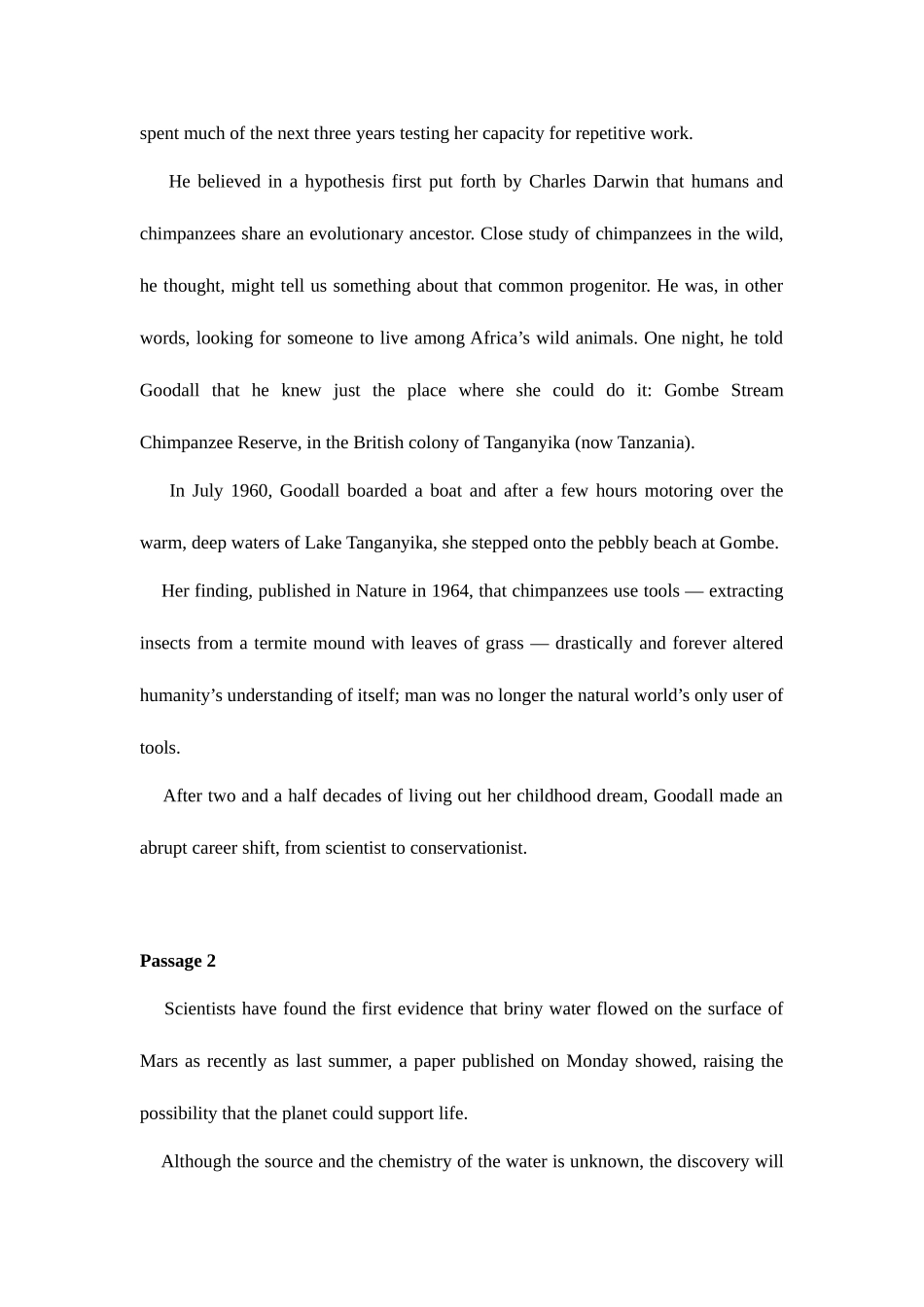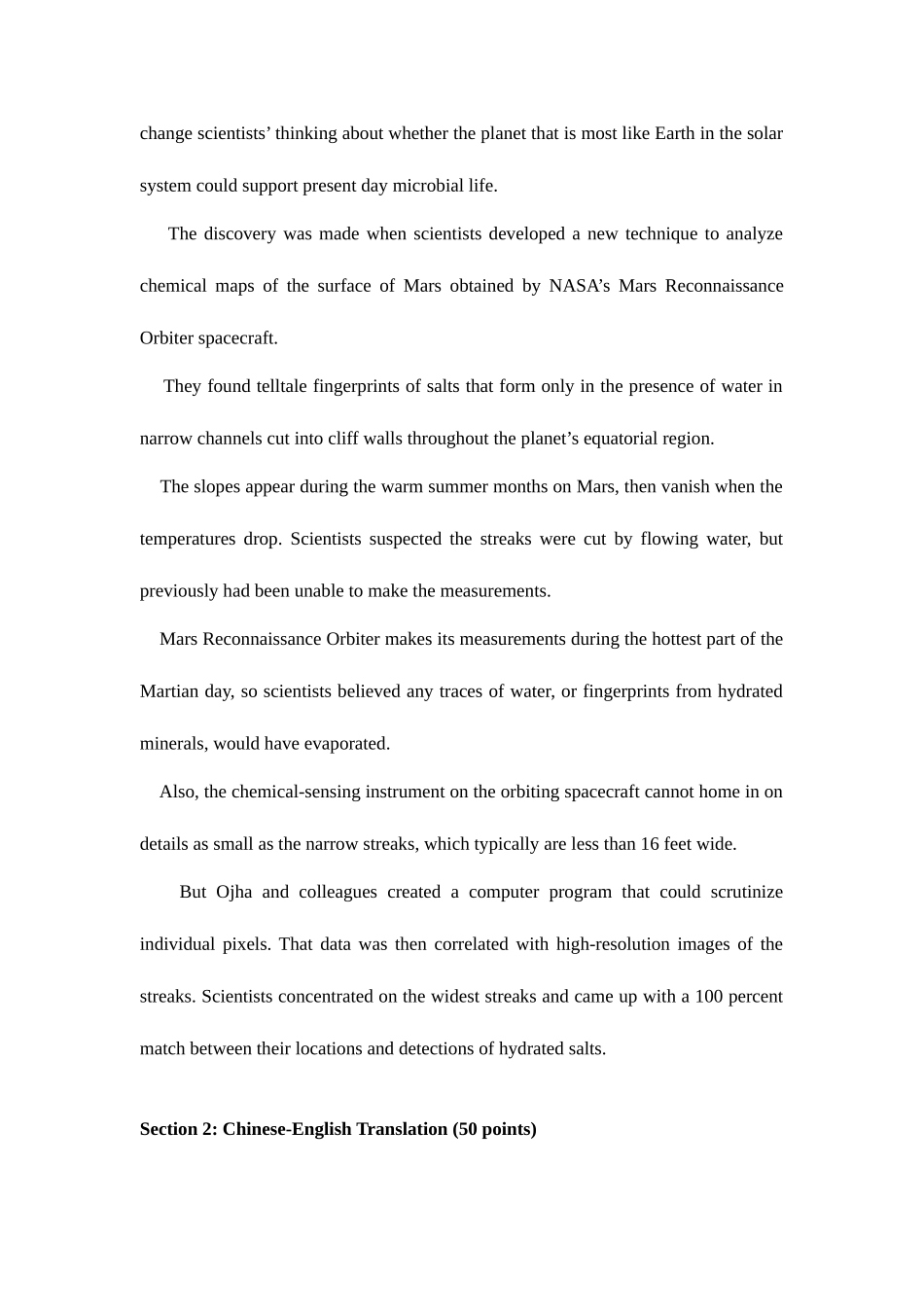5 月英语二级笔译真题Section 1: English-Chinese Translation (50 points)Passage 1 Jane Goodall was already on a London dock in March 1957 when she realized that her passport was missing. In just a few hours, she was due to depart on her first trip to Africa. A school friend had moved to a farm outside Nairobi and, knowing Goodall’s childhood dream was to live among the African wildlife, invited her to stay with the family for a while. Goodall, then 22, saved for two years to pay for her passage to Kenya: waitressing, doing secretarial work, temping at the post office in her hometown, Bournemouth, on England’s southern coast. Now all this was for naught, it seemed. It’s hard not to wonder how subsequent events in her life — rather consequential as they have turned out to be to conservation, to science, to our sense of ourselves as a species — might have unfolded differently had someone not found her passport, along with an itinerary from Cook’s, the travel agency, folded inside, and delivered it to the Cook’s office. An agency representative, documents in hand, found her on the dock. “Incredible,” Goodall told me last month, recalling that day. “Amazing.” Within two months of her arrival, Goodall met the paleontologist Louis Leakey — Nairobi was a small town for its white population in those days — and he immediately offered her a job at the natural-history museum where he was curator. He spent much of the next three years testing her capacity for repetitive work. He believed in a hypothesis first put forth by Charles Darwin that humans and chimpanzees share an evolutionary ancestor. Close study of chimpanzees in the wild, he thought, might tell us something about that com...


